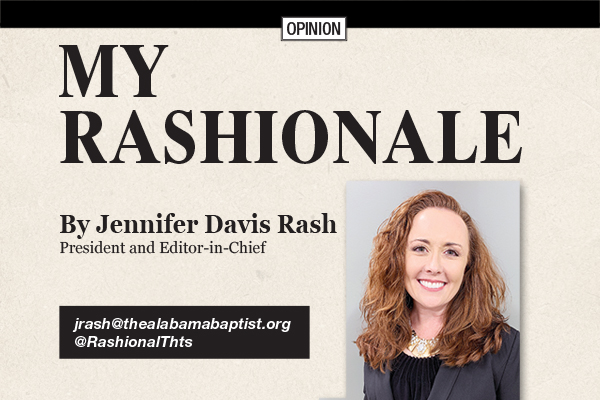The pastor’s path from his office to the pulpit each Sunday morning should have been an uplifting walk with church members smiling at him and encouraging him as he headed into the sanctuary to preach.
Some days that’s exactly what happened but more often than not it was the opposite of what he experienced.
One particular church member knew the pastor’s routine and route and used those few minutes to share all his grievances.
From the outside looking in we can see clearly how the timing would disrupt the pastor’s concentration, distract him and potentially upset him — just minutes before delivering the sermon.
We also can see how the church member became so focused on the items he wanted addressed at the church that he didn’t put any thought into the best time to talk to the pastor.
Sharing concerns, asking for clarity about situations and making requests are certainly valid but choosing optimal times to engage in the discussion will always work out better for both parties involved.
It’s natural to share what’s on our mind related to the church the minute we run into the pastor. We likely do the same with the various people in all parts of our lives.
But is it fair to the other person if we brain dump with no warning and no assessment on our part of the situation before we assume he or she is in the right frame of mind to absorb what we want to share?
If the goal is to spur change or obtain permission to move ahead with a project, then the more productive move means waiting until the person can focus on you.
Interrupting when the other person is concentrating on something else results in difficulty truly listening and likely impatience.
And ambushing the other person because something is on your mind and you intend to force that person to deal with it right now no matter what else is happening only puts him or her on the defense.
Of course emergencies or a crisis of some type supersedes all protocol and etiquette. Interruptions become mandatory in those moments.
It’s the day-to-day routine items, the random thoughts popping in our minds and the various concerns needing attention that should be saved for a time both parties can concentrate.
One of my mentors keeps a specific notebook with her and jots down these types of things so when she has the attention of the person, she works through the list she has been making.
Another friend uses a similar method by using the notes app on her phone.
Scheduling a time to talk also works well especially if a general overview about the purpose of the conversation or meeting is shared in advance.
And starting the conversation by defining whether we need an action taken or if we are merely venting is a tremendous gift to give the one listening. He or she now knows “how” to listen.






Share with others: